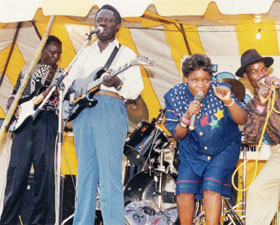PETER THATIAH explains why FM stations and clubs are falling over themselves to play zilizopendwa years after most of the composers took their last bow.
 |
Daniel Owino Misiani and his band thrill fans at a Nairobi hotel. [PHOTO: FILE/STANDARD]
Uncover the stories others won’t tell. Subscribe now for exclusive access
- Unlimited access to all premium content
- Uninterrupted ad-free browsing experience
- Mobile-optimized reading experience
- Weekly Newsletters
- MPesa, Airtel Money and Cards accepted
|